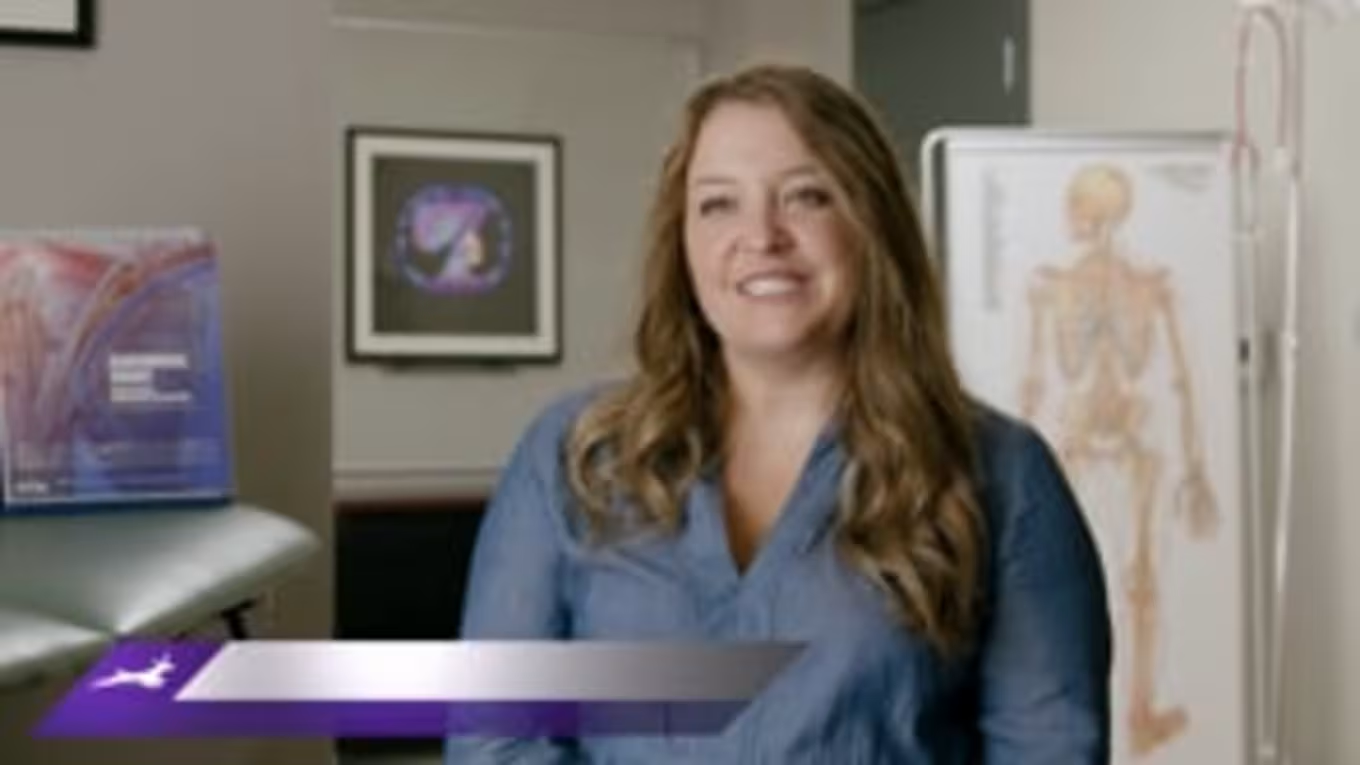MSN: Nursing Education Emphasis

MSN: Nursing Education Emphasis
journey today.

We're here to help.
Online: $600 per credit [More Info]
Up to 12 credits or 1/3 of the total program requirements in transfer (whichever is less)
Credits: Fill out the Lopes Eval to find out what will transfer
Admission Requirements (Master's)
OR 2.5+ Unweighted GPA and
Admission requirements may differ based on degree level, program and modality, or transfer status. Some programs of study may require a higher GPA and/or other qualifying criteria for admission. Please review full admission and program requirements in the University Policy Handbook.
* Degree must be from an accredited college or program that has been approved by GCU.
** Combined verbal/quantitative, after August 2011 (1,000 combined verbal and quantitative, prior to August 2011).
While many baccalaureate degree programs in nursing are completed entirely on campus, as an MSN student, you will have the option of completing your coursework for your MSN online.2 Log into GCU’s intuitive online learning platform from anywhere and access your course materials on a schedule that is convenient for you. As an online student, you’ll still benefit from intellectually stimulating discussions with your peers and ongoing engagement with your instructors.


This nurse educator program emphasizes clinical and organizational decision-making skills based on critical thinking, evidence-based research and diagnostic reasoning.
Graduates may be prepared for a variety of roles in this subfield, either as a clinical educator or academic educator in both traditional and nontraditional settings in nursing education.3

The Master of Science in Nursing with an Emphasis in Nursing Education at Grand Canyon University is designed to prepare registered nurses (RNs) to address the ever-changing and expanding educational needs of the nursing profession. This MSN: Nursing Education emphasis is designed for BSN-prepared RNs interested in pursuing a career in nursing education.
This nursing education emphasis at GCU can give you the opportunity to choose the focus of your practicum experience and provides direct clinical hours aimed at developing advanced skills in assessment. This degree also follows the National League for Nursing (NLN) competencies.
As a private Christian university, GCU integrates the Christian worldview throughout the curriculum. Work through faith-integrated courses as you prepare to inspire, motivate and lead the next generation of RNs and teach them how to provide evidence-based clinical care.
This MSN: Nursing Education emphasis program offers a comprehensive curriculum that aims to thoroughly prepare you to become a capable, confident and mission-driven nurse educator. Nurse educators typically work in academia, although nontraditional teaching environments are also possible.
Some of the likely settings in which a nurse educator may pursue employment include:3

Throughout this program, there are five main focuses you will examine.
These areas include:
Leadership, policy and advocacy
Systems, safety and quality
Health promotion and disease prevention
Analytic foundations for practice, ethics and professional role
Nursing education
This degree does not have special admission or program qualifications. However, it is expected that applicants are licensed RNs. The general admission requirements for all GCU graduate programs are housed in the University Policy Handbook and online through admission.
This nurse educator program includes clinical hours and a practicum capstone course, which can provide opportunities to strengthen critical thinking skills and put educational theories into practice in a supervised clinical care environment.
You can expect to explore advanced topics in areas such as:
Pathophysiology
Pharmacology
Health assessment
Curriculum design and development
Teaching methods
Methods of assessing educational needs
Program evaluation
Learner-centered education theories

Prepare to educate future nurses by submitting an online application to GCU’s MSN program.
There is a critical shortage of nurse educators in the U.S., which is contributing to the ongoing shortage of nursing professionals.1 According to the American Association of Colleges of Nursing (AACN), nursing schools in the U.S. were forced to reject more than 90,000 qualified nursing school applicants in 2021 due in large part to insufficient nursing faculty.1
As a nurse educator, you could lead the way in delivering quality, effective nursing instruction to the generations of new nurses to come — helping to address the ongoing shortage of qualified professionals in the U.S.


At GCU, our educators prioritize the quality of their instruction and thoroughness of the curriculum so that our students can be well-positioned in their academics and career outcomes. We have been institutionally accredited by the Higher Learning Commission since 1968.
The College of Nursing and Health Care Professions shares the university’s commitment to upholding the principles and standards established by our accreditor. For more information on the accreditation of nursing programs and other university approvals, please visit our University Accreditation and Regulations page.
Read through the following frequently asked questions and answers to guide your decision-making process as you reflect upon your degree program choices and intended career outcome.
According to a survey by the AACN, most nursing school respondents noted that nursing faculty shortages were a significant factor in turning away qualified nursing school applicants.1 According to a separate survey by the AACN, the national nurse vacancy rate as of 2022 was 8.8%.1 In order to educate sufficient numbers of future nurses, schools across the country need qualified nurse faculty members.
Additionally, according to the U.S. Bureau of Labor Statistics, postsecondary nursing instructors and teachers had a median annual salary of $80,780 in May 2023.4 If you have a passion for advancing the nursing profession and the desire to inspire the next generation of RNs, then completing a nurse educator program could be well worth your time.
In a nursing education emphasis program, you will be taught the necessary competencies to step into an academic leadership role. Programmatic goals include the teaching of organizational leadership skills, advanced topics in pathophysiology and pharmacology, academic research skills and nursing student teaching and assessment skills.
Yes, you can teach nursing with a master’s degree. Of course, solely earning a master’s in nursing education will not guarantee you a teaching job. Many four-year institutions will have different requirements to become a full-time faculty member, but a Master of Science in Nursing degree is the minimum qualification required.3 If you would like to further enhance your career qualifications, you might consider earning a Doctor of Nursing Practice (DNP) degree.
How long it takes to go from the BSN to MSN depends on the program and any transfer of credits. GCU is a transfer-friendly university, helping you utilize any eligible credits that can apply to your degree program and possibly reduce time to completion. To better understand how long it might take to earn your master’s degree, fill out the form on this page to speak with a university counselor.
There are many other types of master’s degrees in nursing that examine several different topics. These include public health, health informatics, healthcare quality and patient safety and many others. Be sure to look into other online nursing degrees at the master's level offered by GCU.2
1 American Association of Colleges of Nursing. (2022, October). Nursing Faculty Shortage Fact Sheet. AACN. Retrieved March 14, 2024.
2
Clinical, practicum and immersion hours completed locally.
3 Gaines, K., MSN, RN, BA, CBC. (2023, Sept. 18). How to Become a Nurse Educator. Nurse.org. Retrieved March 14, 2024.
4 The earnings referenced were reported by the U.S. Bureau of Labor Statistics (“BLS”), Postsecondary Nursing Instructors and Teachers, as of May 2023, retrieved April 30, 2024. Due to COVID-19, data from 2020 to 2023 may be atypical compared to prior years. BLS calculates the median using salaries of workers nationwide with varying levels of education and experience. It does not reflect the earnings of GCU graduates as postsecondary instructors and teachers, nor does it reflect earnings of workers in one city or region of the country or a typical entry-level salary. Median income is the statistical midpoint for the range of salaries in a specific occupation. It represents what you would earn if you were paid more money than half the workers in an occupation, and less than half the workers in an occupation. It may give you a basis to estimate what you might earn at some point if you enter this career. Grand Canyon University can make no guarantees on individual graduates’ salaries. Your employability will be determined by numerous factors over which GCU has no control, such as the employer the graduate chooses to apply to, the graduate’s experience level, individual characteristics, skills, etc., against a pool of candidates.